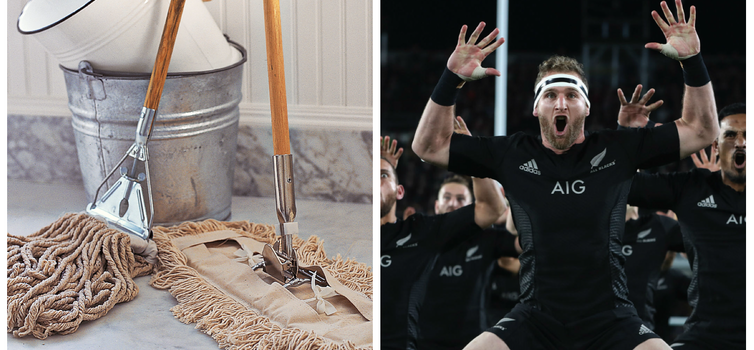Sweep the sheds: Not being too big for the small things

Written by Simon Austin — May 11, 2018
Sweeping the sheds.
Doing it properly.
So no-one else has to.
Because no-one looks after the All Blacks.
The All Blacks look after themselves.
WHEN Arsenal left the away changing room in a terrible mess after their FA Cup fifth round win over Sutton United in February 2017, it may have been easy to dismiss it as unimportant.
There were half-empty bottles, used tissues and strapping strewn over the floor. Was this symptomatic of a deeper problem both on and off the pitch for the Gunners?
In James Kerr's book Legacy, which explores the lessons of leadership from the New Zealand All Blacks, former fly-half Andrew Mehrtens talks about the ritual of 'sweeping the sheds' after a game.
"It's an example of personal discipline, it's not expecting somebody else to do your job for you," he says.
"It teaches you not to expect things to be handed to you. If you have personal discipline in your life, then you are going to be more disciplined on the field."
In Legacy, Kerr describes the scene in the dressing room after a resounding 42-7 win over Wales.
"Something happens that you might not expect. Two of the senior players - one an international player of the year, twice - each pick up a long-handled broom and begin to sweep the sheds. They brush the gauze into small piles in the corner."
Lock Sam Whitelock has explained: “Leaving the changerooms or training ground the way you found it - or in a better state - is a part of every team I’ve been involved with. Richie (McCaw) and Dan (Carter) are no different to any other player in that regard.”
England's rugby players also followed the All Blacks' lead, with skipper Dylan Hartley introducing a policy of designated players cleaning the changing room after matches in the Autumn of 2016.
The idea of sweeping the decks has been a core principle in the Marines for a long time.
Former Royal Marine Commando JJ Chalmers told TGG: “In the Marines, you draw the line at excellence, no matter what you are doing. It’s all about standards.
“I remember a guy getting chewed out for failing to clean some portaloos properly. The sergeant came out and said, ‘I’ve asked you to clean a toilet. How can I trust you to have my back and look after the guys around me if you can’t get the fundamentals right?”
Liverpool’s legendary manager, Bill Shankly, served in the RAF during the Second World War. When he returned to football, his military standards came with him.
“In the services during the war you got some horrible jobs,” he remembered (above). “They got you in the cookhouse to dry about 6,000 dishes. Well, if I had a job to do, even if it was scrubbing the floor, I wanted my floor to be cleaner than yours.
“If everyone thinks along these lines and does all the small jobs to the best of their ability, that’s honesty. Then the world would be better and football would be better.”






-1.png)





